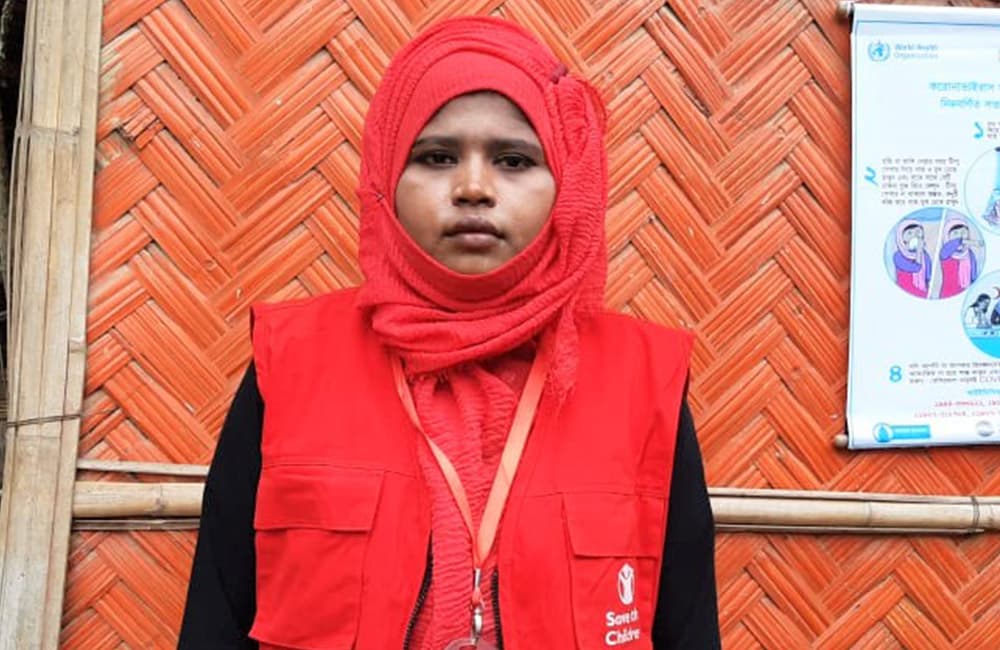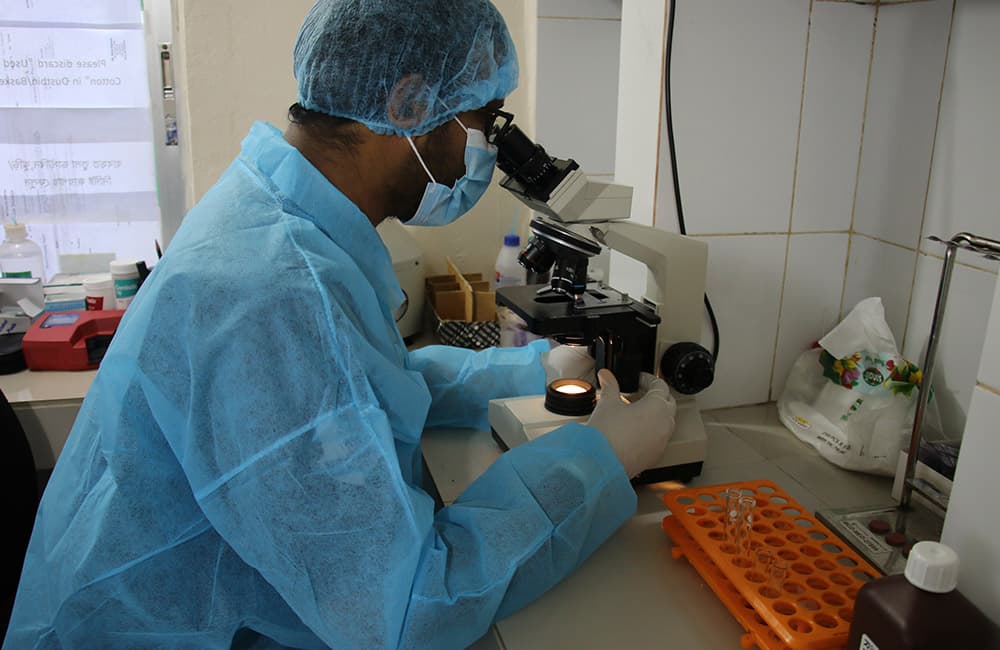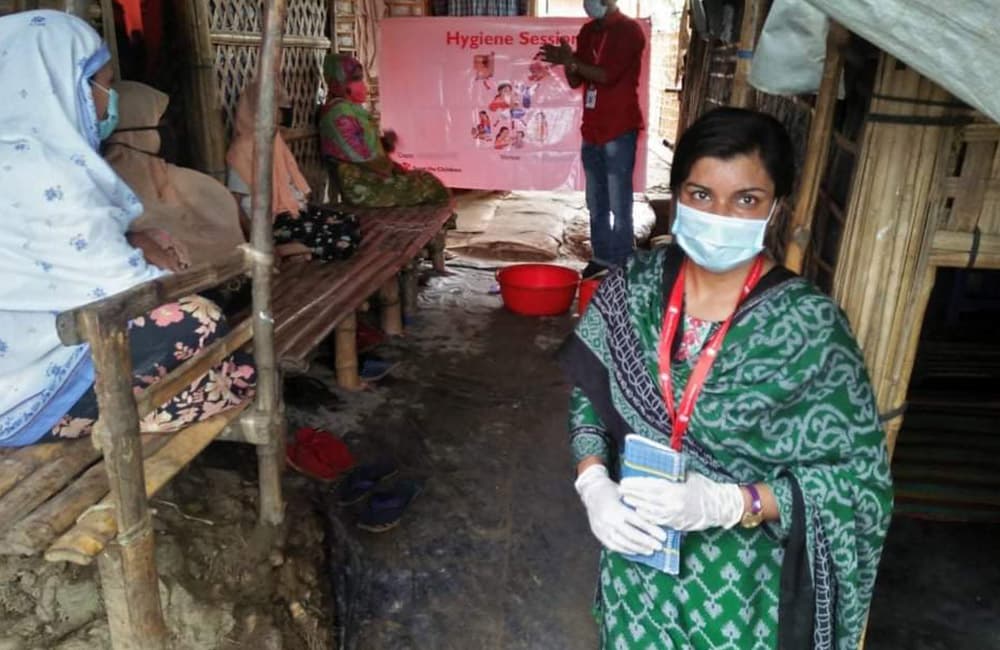Emergency workers ready to respond in the world’s largest refugee camp
In the world’s largest refugee camp, the coronavirus crisis is building. For the nearly 900,000 Rohingya refugees who live in Cox’s Bazar in densely packed, makeshift shelters, it’s a race against time. Already six people have died and 58 cases have been confirmed in the camp. But on their side is a worldwide outpouring of support, and dedicated Save the Children staff who are doing everything they can to keep the residents safe.
It’s almost impossible to socially distance here; with 40,000 refugees jammed in each square kilometre of the camp. Soap and clean water are rare. Regular internet blackouts mean reliable information is scarce and misinformation abounds. If COVID-19 takes a firm foothold in the camps, it will devastate an already traumatised population.
New facilities and support for the most vulnerable
Save the Children has been supporting Rohingya refugees in Cox’s Bazar since they fled ethnic violence in August 2017. Since we launched our appeal for Rohingya refugees, generous supporters have helped us build health facilities, educate and immunize children. Now, we’re ramping up our efforts to tackle the biggest health emergency ever.
We have nine existing health facilities in the camps, and we’re working on multiple fronts to prepare the community and keep children safe.
Our new isolation and treatment centre has 60 beds to care for COVID-19 patients. Around 80 health and support staff, including members of our highly experienced Emergency Health Unit, are there to treat patients.
We have also set up 30 temporary screening and treatment units for COVID-19 patients who experience only mild symptoms. Our community volunteers are also working hard, providing information to families about how they can protect themselves from the virus.
Alongside our COVID-19 response, we’re maintaining our essential health services, so mothers can continue to have their babies safely in maternity clinics, and children can maintain a healthy diet and be treated when they fall ill.
Our heroes on the ground
_1172338712.jpg.aspx)
Zahana is a community mental health worker in the refugee camp. Like other workers in the camp delivering essentials, she goes door to door to talk with families and educate them on best practices during the pandemic. She’s found that rumours have circulated about how the virus spreads and when to seek treatment. Some believe if they turn up to hospital with the virus, they’ll be sent away or shot. “Recently during a session one Rohingya mother raised her concern about two of her children’s sickness,” she says. “But she was afraid to take them to the hospital because of the rumours. I assured her, nothing will happen, and we are actually working for helping them not to harm them. Right after the session ended, I accompanied her to take her children to our hospital. Both were cured after receiving treatment. The mother was so happy and blessed me for helping her. Now she does not believe the rumours and inspires others by sharing her story to come to see doctor if sick.”

Abdul is Save the Children’s Lab Technician in the camps. Alongside regular illnesses in the camp like pneumonia and diarrhoea, preparing COVID-19 samples for testing has increased his workload significantly.

Shantiara trains volunteers in the camps to speak to families about hand hygiene. It’s the volunteers who will continue to support the nearly one million refugees in the camps.